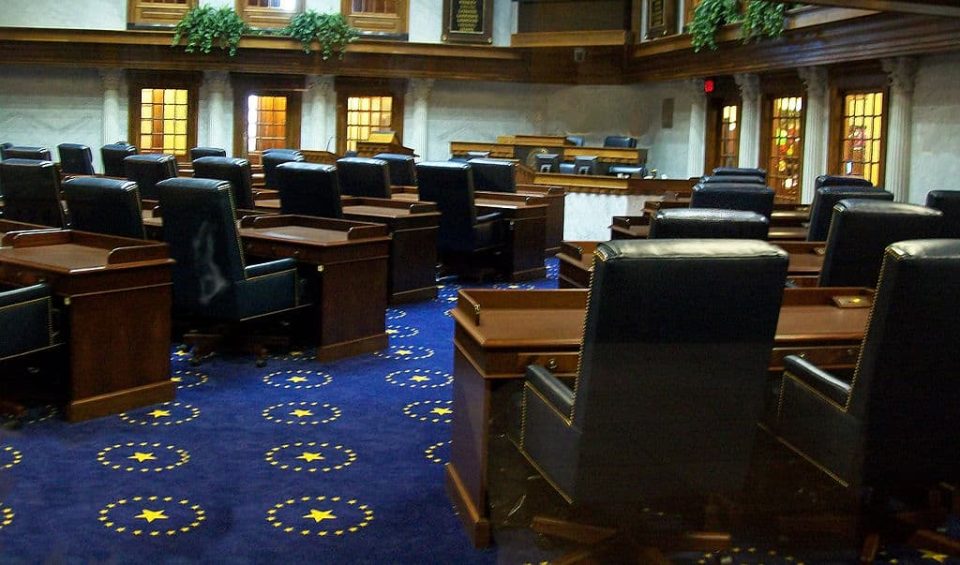The billion-dollar tax cut pushed by House Republicans has hit its expected roadblock in the Senate.
Senate Republicans have warned for months they’re skeptical of making long-term tax changes before they deal with the full budget next year.
With the arrival of the House-passed bill in the Senate, the Tax and Fiscal Policy Committee quickly put those warnings into action, stripping all the proposed tax cuts out of the bill.
The House bill reduced the income tax and a business equipment tax, repealed two taxes on utility bills, and made it easier to trigger Indiana’s automatic tax rebate.
Senate Appropriations Chairman Ryan Mishler (R-Bremen) says the automatic rebate has an advantage over the others in that it’s a one-time expense, not a permanent change. But the House bill would pump up the reserves earmarked for taxpayers by canceling a two-and-a-half-billion-dollar payment to Indiana’s pension liability.
Mishler says the state has paid off nearly half that debt, but still has about 10-billion dollars it needs to address.
“Giving money away is great, but I think we pay our debts first, and then do the hurrahs and give the money away,” Mishler says.
Governor Holcomb hasn’t weighed in on most of the House tax package, but has endorsed the business tax change, which would get rid of the depreciation limit on business equipment.
Justin McAdam with the Office of Management and Budget urged the committee to reconsider its opposition, calling the tax an obstacle to economic development.
Indiana’s tax code halts equipment depreciation at 30-percent of the original value, the highest floor in the nation. McAdam says only 12 states have gotten rid of the depreciation floor, but two of them are Illinois and Ohio, with Michigan set to join them in 2025.
The business personal property tax goes to local governments, not the state.
Tax and Fiscal Policy Chairman Travis Holdman (R-Markle) acknowledges the discussions of the bill are far from over, with the House and Senate trying to negotiate a final compromise over the final two weeks of the session. But he says Senate Republicans are “entrenched” in opposing anything that reduces money to local governments or interferes with the effort to pay down debt.
The committee won’t send the bill to the full Senate until next week. For now, the only remaining tax changes are two proposals already passed by the Senate in other bills: extending the automatic tax rebate to people who didn’t owe any income tax, and setting a 20-year limit on most local food and beverage taxes unless legislators reapprove them.
Senators have also added a provision requiring the General Assembly to approve any expansion of the Hoosier Lottery, a response to the lottery’s discussion of selling lottery tickets digitally.


1 comment
It’s ok to “pay the bills first” instead of giving that money back to the taxpayers, but if you’re going to go that route you darn well better come up with some kind of guarantee so we know that’s where the money will go.
We’ve seen too many instances where a surplus was blown on frivolous crap instead of being returned to the people who actually earned it.